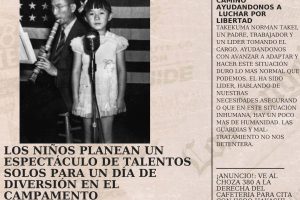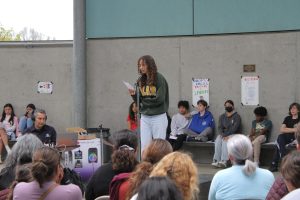Building Empathy is a project of PEF and PUSD, with support from the California State Library and California Humanities





Newspapers, Speeches
Students in the Dual-Language Spanish Immersion program read and discussed Nos llamaron enemigo and Antes de ser libres, then interpreted the themes from those books and a field trip to Little Tokyo. This research resulted in public speeches about contemporary issues and Spanish reimaginings of newspapers from the detention camps.
Featured Work
Participating teachers at Blair International Baccalaureate: Ms. Elizabeth Najera Bustillos & Ms. Jesus Cobian Baca, Dual Language Immersion Program (DLIP-Spanish)
In 2022-23, Ms. Najera and Ms. Cobian worked with sixty five eighth graders who were in Blair’s DLIP-Spanish program. In Fall 2022, students read Antes de ser libres, Spanish translation of Before We Were Free by Julia Alvarez, that traces the story of a 12-year old girl’s quest to find freedom while living in the Dominican Republic under the rule of a dictator.
In the spring semester, students began reading and discussing Nos llamaron Enemigo, Spanish translation of They Called Us Enemy by George Takei, Justin Eisinger, and Steven Scott. In February 2023, students attended a field trip to Little Tokyo through which they explored the eight blocks on their own and participated in an interactive tour of the Japanese American National Museum’s Common Ground exhibition.
After the field trip, as part of the project, students generated newspapers in Spanish about the Japanese American detention camps, and also prepared a sushi meal.
The project culminated with students writing public speeches on contemporary issues such as immigration, racism, LGBTQ+ rights and much more. At a public event in Blair’s middle school courtyard, sixteen students delivered their speeches in Spanish; English versions of their speeches were recorded later that week.
Page Header Photo: Collage by Blair DLIP students; Photo credit: Jesus Cobian
IN THIS SECTION
What we hear!
“To be completely honest, I did not know a lot about the history of the Executive Order [9066], and how they lived during those times. But I think it was a really good experience to see first-hand from people that were there and from the relatives [of survivors], so they could explain to us about how hard it was for them to get through that time…”
—Diego, Blair International Baccalaureate School



